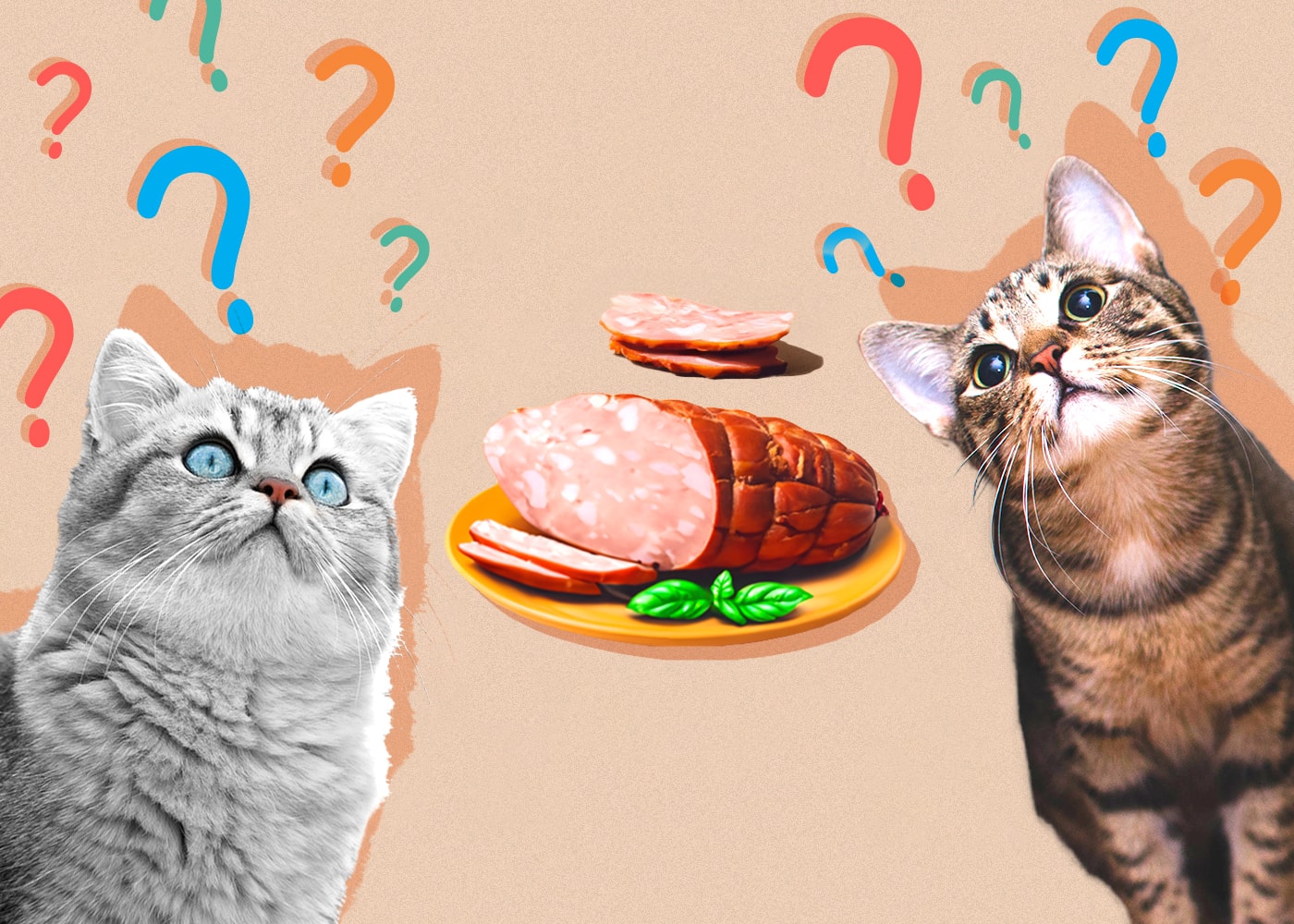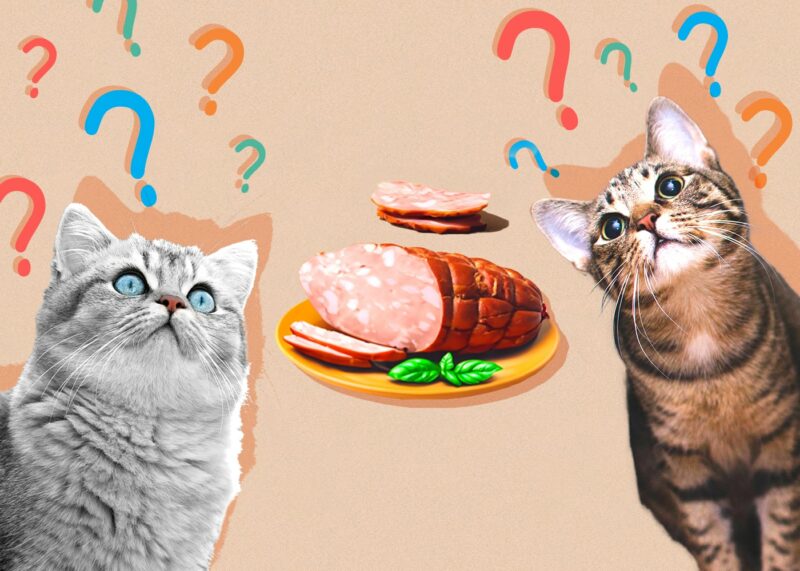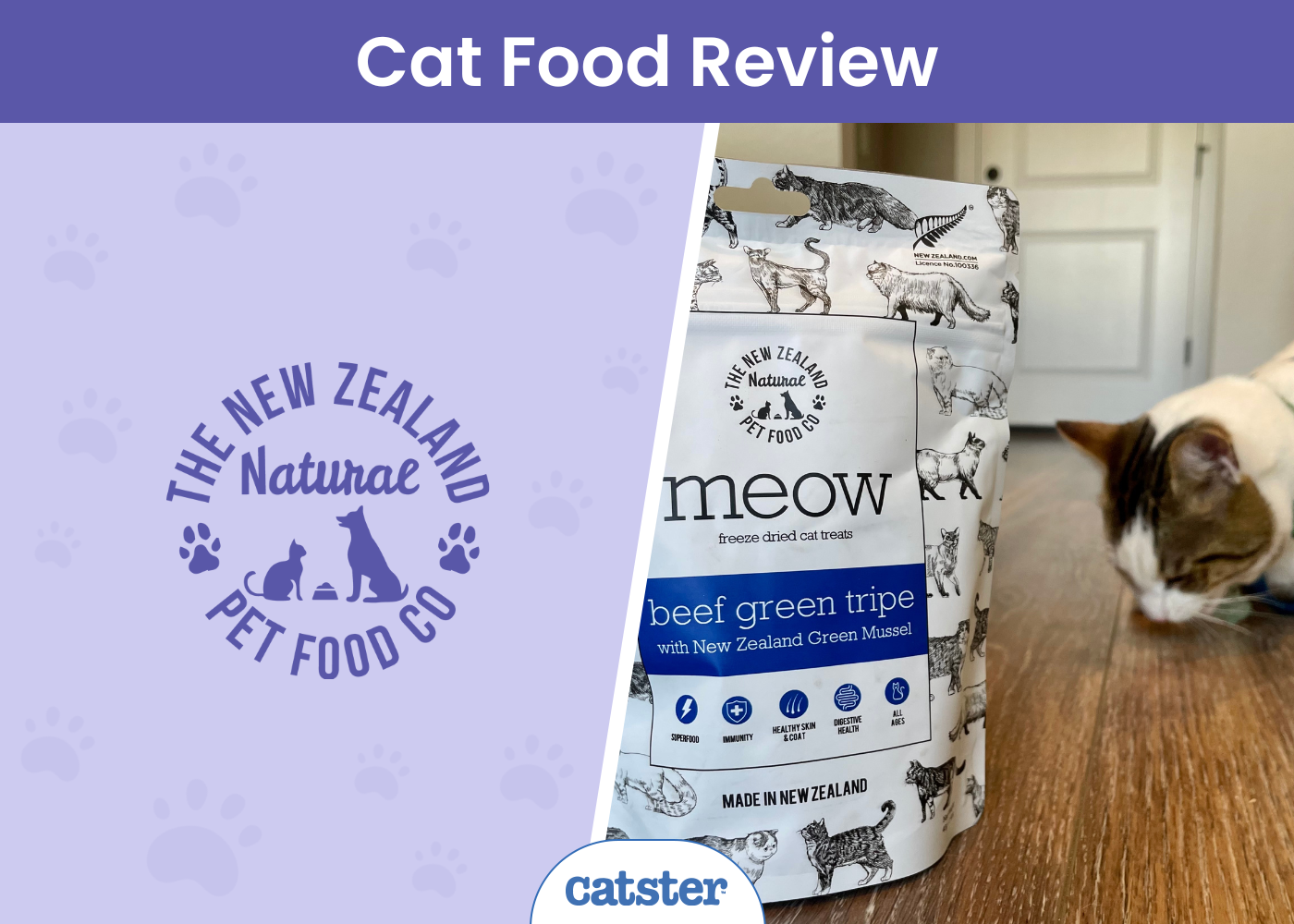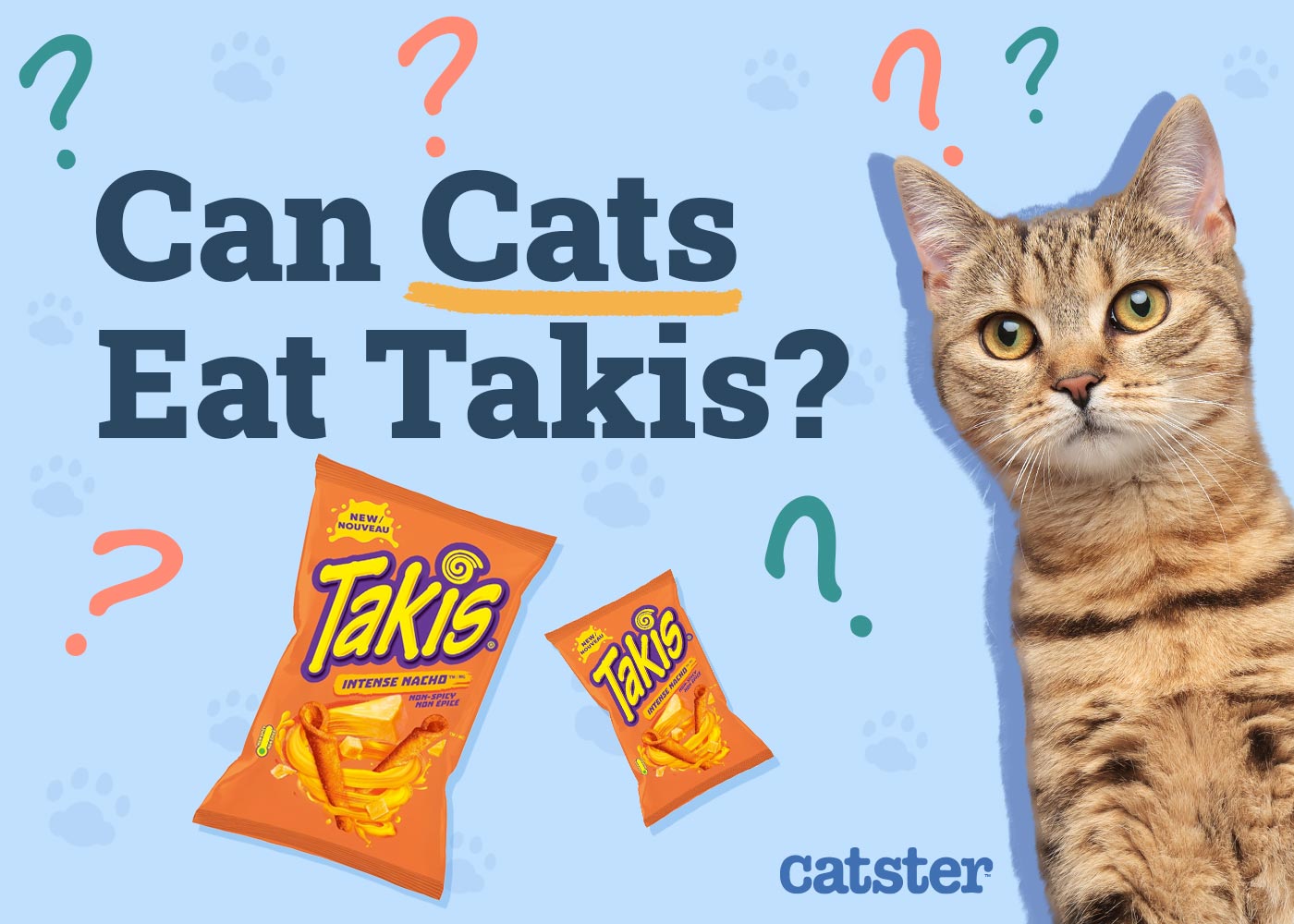If you’ve ever looked up from a leisurely lunch to find your cat eyeballing your meal, you know our feline friends can give dogs a run for their money when it comes to begging. Before you give in and share your sandwich, however, you should find out whether it’s safe to do so. Can cats eat lunch meat?
Yes, deli meat can make a fine treat for your cat in moderation, but it cannot replace a balanced diet. In this article, we’ll let you know how to safely include lunch meat in your cat’s diet, as well as some other human food that’s okay for them to eat.

Deli Meat and Cats: The Pros and Cons
All meat, including deli meat, is high in protein. Cats are true carnivores, meaning they are adapted to absorb and digest nutrients from animal sources most efficiently. If you’re going to give your cat treats, it’s a good idea to make sure they offer some nutritional value, as well as taste, and lunch meat fits into this category.
However, processed meats aren’t as healthy for anyone—human or cat—as meat in its original form. Many deli types of meat are high in fat and salt and contain artificial flavors, colors, and preservatives. With about 50% of all adult pet cats considered overweight, many owners need to be careful about how many calories their pets consume.
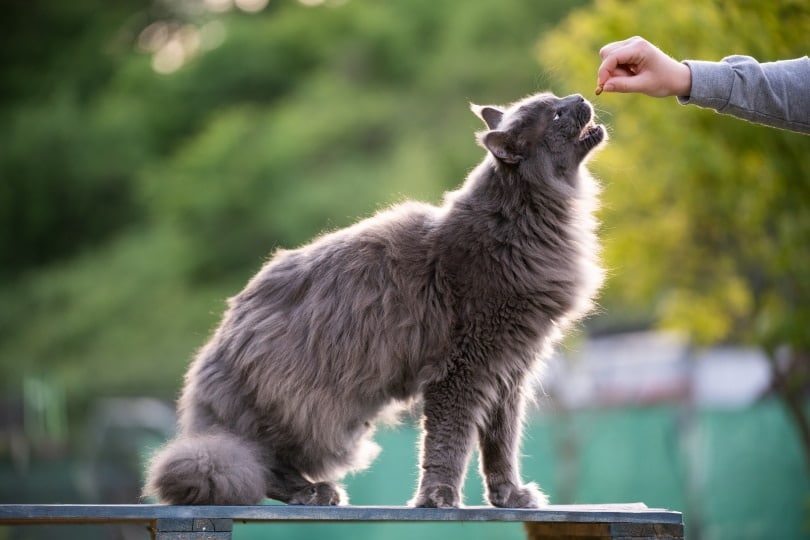

What About Listeria?
If you or someone you know has ever been pregnant, you might be familiar with the recommendation that someone expecting should avoid eating deli meat due to the possibility of Listeria contamination. Knowing this, you might wonder whether this disease impacts cats as well.
Listeria (L. monocytogenes) is a bacteria that causes food poisoning. It can contaminate many foods, including lunch meat. In humans, Listeria is most dangerous to those with compromised immune systems, like kids, seniors, and pregnant women. Many animals are also susceptible to this bacteria, but cats are only rarely impacted.
Your cat can get sick from Listeria, but the greater danger is that they become infected without showing any symptoms, and pass the bacteria to the humans in their lives.

Feeding Deli Meat to Your Cat
When feeding your cat deli meat, choose the leanest, least processed option you can, all-natural if possible. Generally, treats should only make up 10%–15% of your cat’s total daily calories. Check the nutrition label of the deli meat you’re feeding to confirm the calories per slice before giving it to your cat.
Never feed your cat spoiled or expired lunch meat. It can make them sick just like it would a human, including from Listeria.
If your cat is overweight or has a chronic health condition, ask your veterinarian if it’s okay for them to eat deli meat. Your vet can also help you determine how many calories your cat should be eating per day to maintain a healthy weight.
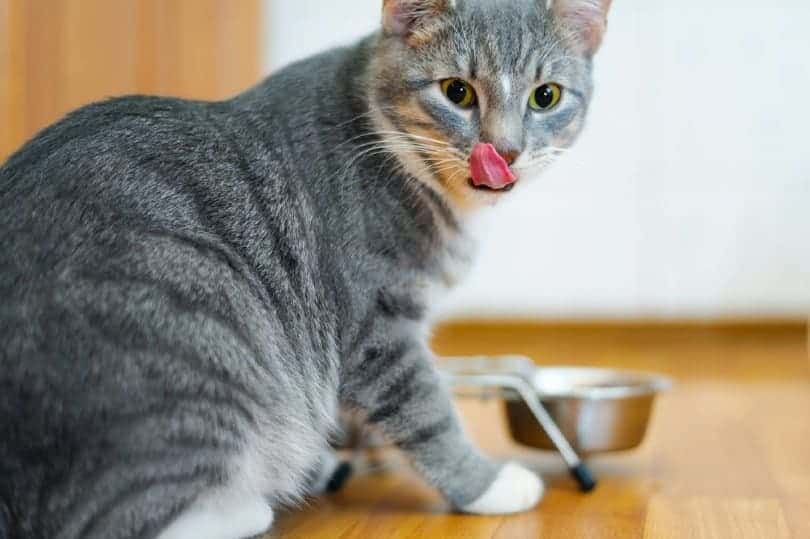
Your cat may enjoy lunch meat as a food garnish for their regular meals or as a snack. Just be careful your cat doesn’t grow too fond of the deli meat and start refusing to eat their normal diet. You could also use lunch meat to hide your cat’s pills if they take medications or as a training reward.
Every cat is different, and so is their digestive system. So, while deli meat may be safe to eat, that doesn’t mean it will agree with every kitty. If your cat shows signs of stomach trouble, such as vomiting or diarrhea, you may need to find a different treat option or cut out snacks altogether.

Other Safe Human Foods
If deli meat upsets your cat’s stomach or they need a lower calorie treat option, many other human foods are also safe to eat.
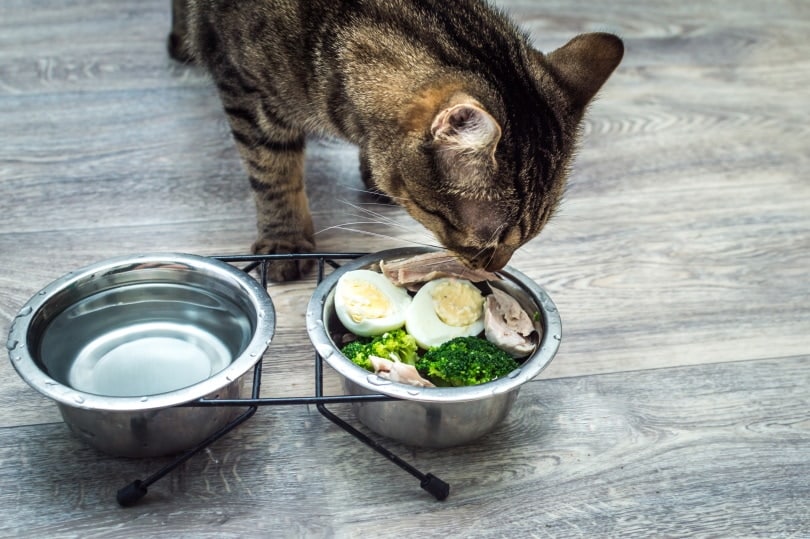
- Cooked meat or fish
- Cooked eggs
- Fruits such as cantaloupe or banana
- Vegetables like green beans or broccoli
- Whole grains such as oats and quinoa
While meats of any kind make an ideal snack for cats, never feed your cat raw meat, eggs, or fish. These foods contain dangerous bacteria (including Listeria) that can pose a threat to your cat and other people in the house.
- Grapes and raisins
- Onions and garlic
- Chocolate
- Milk and most other dairy products
- Raw bread dough
- Alcoholic beverages

Conclusion
The majority of your cat’s calories should come from a nutritionally balanced food formulated just for kitties. But most cats also enjoy getting some unexpected, tasty treats, and lunch meat is an excellent, safe option to consider in moderation.

